Profile: Khader Adnan, iconic Palestinian resistance leader, murdered at 44
By Syed Zafar Mehdi
Khader Adnan, a senior leader of the Palestinian resistance movement Islamic Jihad, breathed his last in an Israeli jail in the wee hours of Tuesday morning after nearly three months of hunger strike.
Adnan, who had emerged as a powerful symbol of the Palestinian resistance to the Israeli regime’s policy of arbitrary detentions and custodial torture of resistance fighters, was “found unconscious” in his prison cell, according to his jailers, confirming the custodial murder.
The 44-year-old resistance commander and a father of nine from the town of Arraba near the occupied West Bank city of Jenin spent several years in different Israeli prisons and went on hunger strike many times in protest against the regime’s so-called “administrative detention”.
This arbitrary detention policy, inherited from British colonizers, allows the occupying regime to indefinitely hold Palestinian "suspects" without charge or trial.
Israeli regime authorities never pressed formal charges against the iconic resistance commander, but took him in custody arbitrarily on many occasions over "activities that threaten regional security."
“We are all Khader Adnan” calls would often reverberate across the occupied territories as the Islamic Jihad leader languished behind bars – not for a personal cause but in defense of other prisoners.
It is worth noting that the occupying regime currently holds thousands of Palestinians without charge or trial in different jails in inhumane conditions, and many of these prisoners are struggling with deteriorating health.
According to reports, Adnan was repeatedly detained on flimsy pretexts by the occupying regime since 1999 but his “crimes” could never be proved and he was never charged with anything.
Between 2012, when he went on a hunger strike in jail for 66 days till his custodial murder on Tuesday, the celebrated resistance commander staged hunger strikes more than a dozen times.
In a letter addressed to people through his lawyers before announcing the hunger strike in February 2012, Adnan said the Israeli occupation “has gone to extremes” against Palestinian prisoners.
“I have been humiliated, beaten, and harassed by interrogators for no reason, and thus I swore to God I would fight the policy of administrative detention to which I and hundreds of my fellow prisoners fell prey,” read the letter, which was circulated widely.
“The only thing I can do is offer my soul to God, as I believe righteousness and justice will eventually triumph over tyranny and oppression. I hereby assert that I am confronting the occupiers not for my own sake as an individual, but for the sake of thousands of prisoners who are being deprived of their simplest human rights while the world and international community look on.”
In June 2015, while he was on hunger strike at an Israeli jail, Adnan said “the more the Israelis torture me, the stronger and more determined I become”, as cited by his lawyer at the time, bearing testimony to his extraordinary valor.
According to Addameer, a support group for Palestinian prisoners, Adnan spent almost six years in Israeli prisons since his first detention in 1999 when he was held for four months.
Adnan’s political activism dated back to his student days, according to reports, when he was a student at Birzeit University. He got involved in the activities of the Islamic Jihad resistance movement against the apartheid regime there.
In an interview with Al-Jazeera in February 201, his wife Randa Mousa said Adnan had told her that his life was "not normal", but added that she “always dreamt of marrying someone strong, someone who struggles in defense of his country."
Mousa told AFP news agency last week that her husband was being held at Ramla prison and the jail authorities had turned down the family’s request to shift him to a civilian hospital.
A medic group in the occupied territories in a statement on Monday said Adnan “struggles to move and maintain a basic conversation, appearing pale, weak, exhausted and dangerously emaciated”, warning of his “imminent death”.
He was denied any kind of medical care and attention and refused to eat for 87 days in custody this time, which eventually led to his tragic murder. Human rights advocates in recent weeks repeatedly cautioned the regime over his deteriorating health condition.
In his famous words, a person should either seek martyrdom like Imam Hussain (AS) or be the propagator and disseminator of the message of pure blood like Sayyeda Zainab (SA), invoking the great Iranian scholar and sociologist Dr. Ali Shariati.
His custodial murder has drawn widespread anger and outrage, both in the occupied territories and worldwide, with the Palestinian Prisoners Society saying the Israeli occupation “assassinated” him.
WAED Prisoners Association in Gaza, in a statement published by the Reuters news agency, said the iconic resistance commander “was executed in cold blood”.
Palestinian Islamic Jihad movement, in a statement after the news of Adnan’s custodial murder, said the fight will continue and the enemy “will realize once again that its crimes will not pass without a response. Resistance will continue by all might and determination.”
"In our long march towards Al-Quds, we will lose many brave men, leaders, and fighters along the way, and Commander Khader Adnan was one of those who paved a wide path for all those who seek freedom in Palestine and the world," the PIJ said in a statement.
Leader: Iran has no proxy forces in West Asia
US fighter aircraft shot down ‘in friendly fire’ amid aggression on Yemen
Yemeni FM: Israel’s sponsors accountable for ongoing aggression on Sana’a
Eight Palestinians killed as Israel attacks Gaza school, hospitals
VIDEO | Rome, Milan host new protests in solidarity with Palestinians
Dec. 21: ‘Axis of Resistance’ operations against Israeli occupation
Spain jurists demand ties with Israel ties be cut
VIDEO | Press TV's news headlines


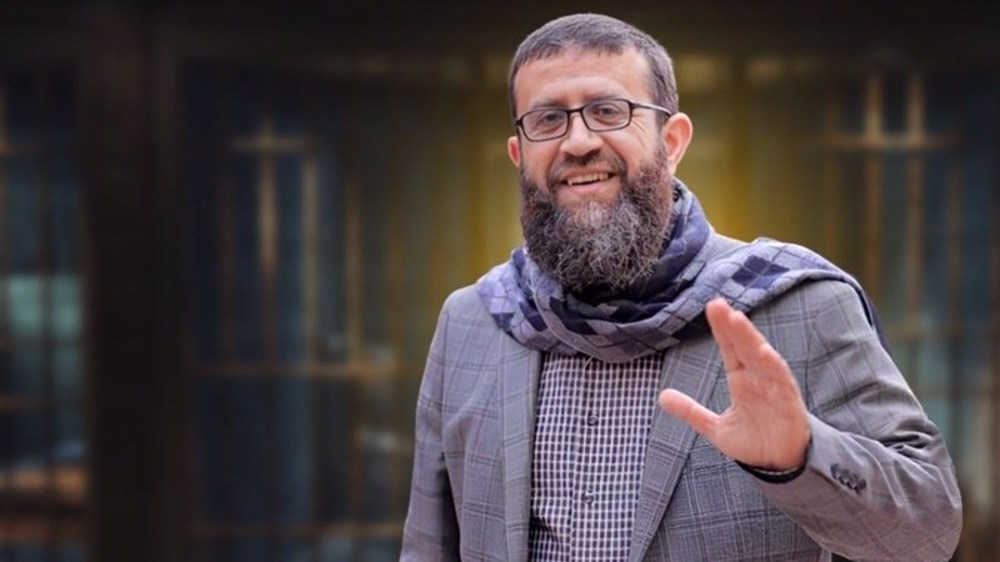


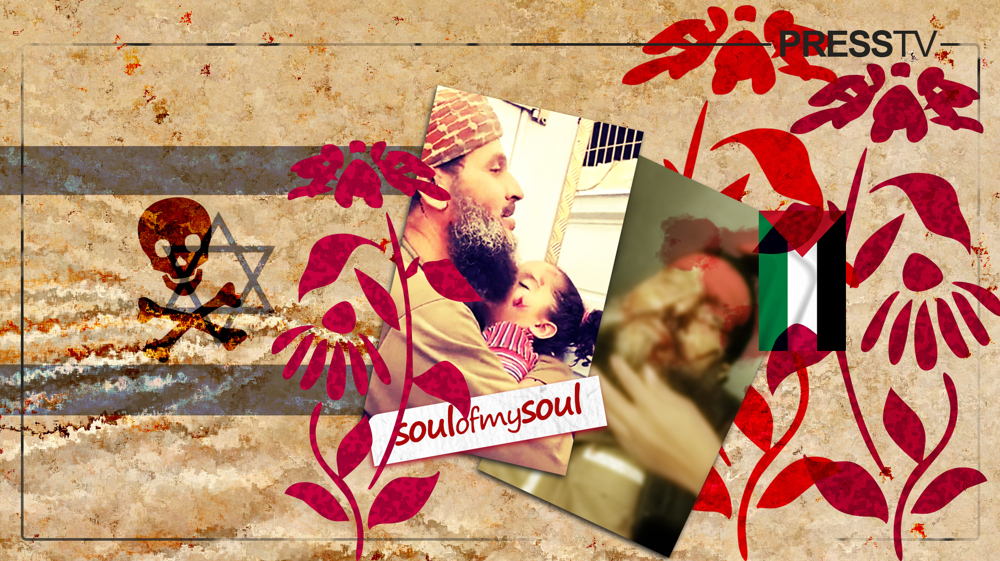





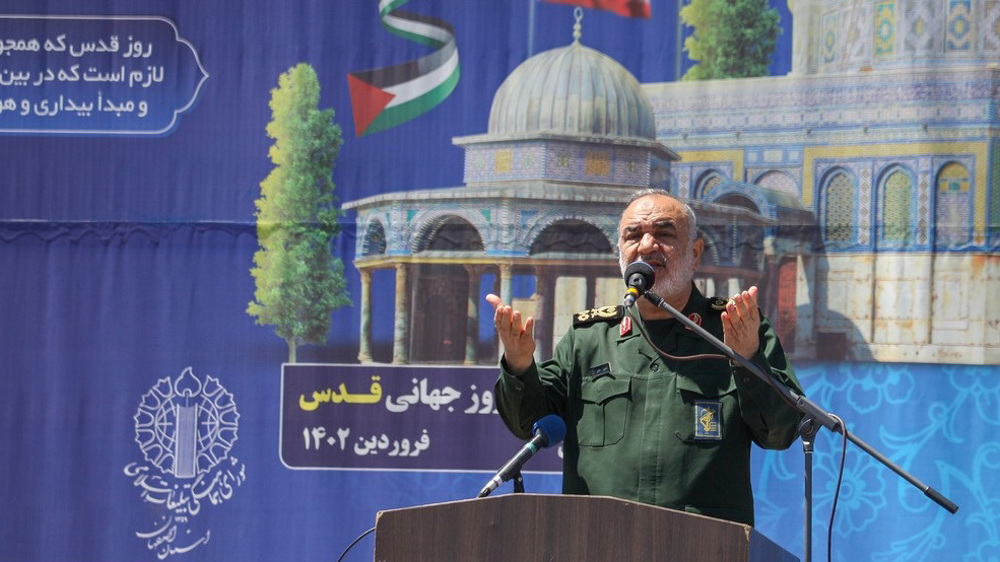
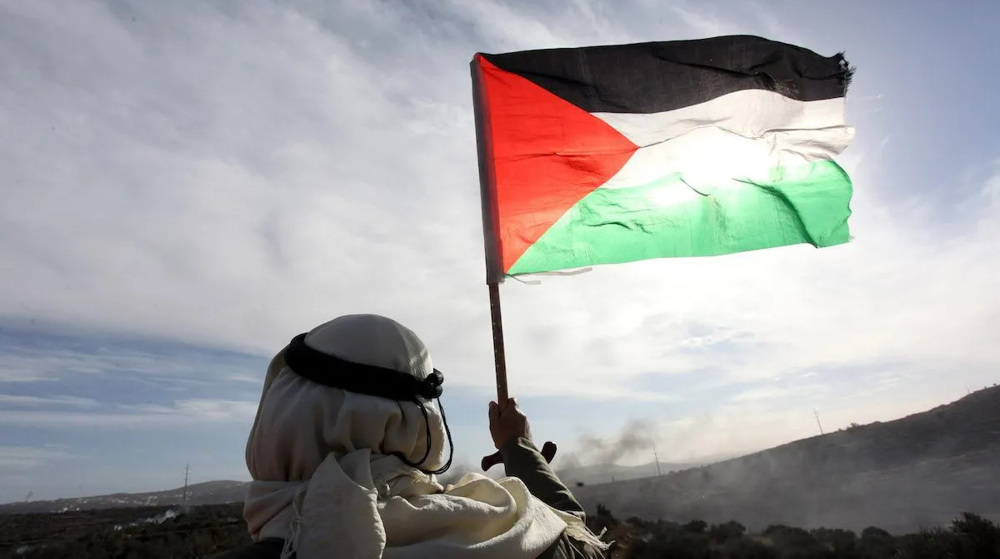
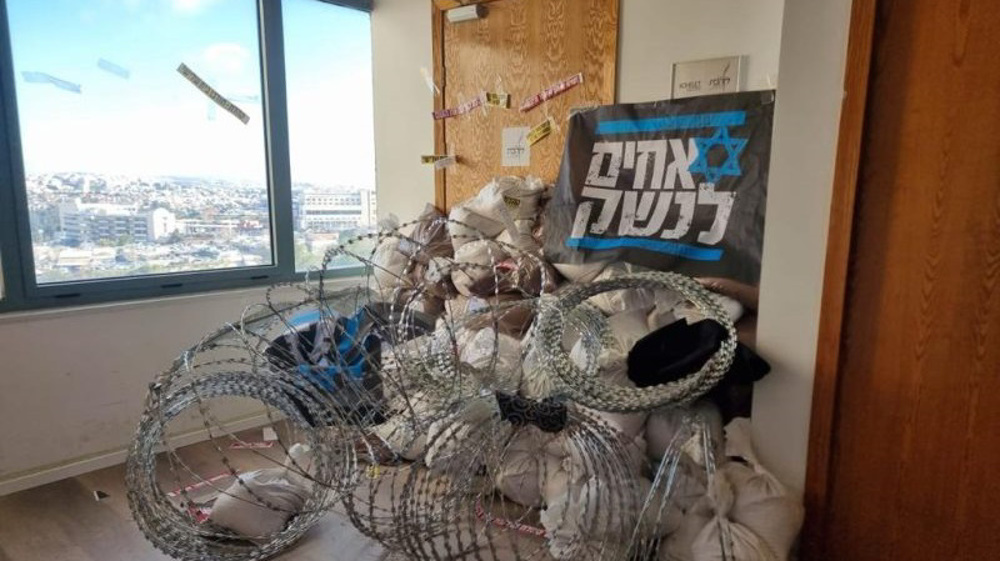

 This makes it easy to access the Press TV website
This makes it easy to access the Press TV website